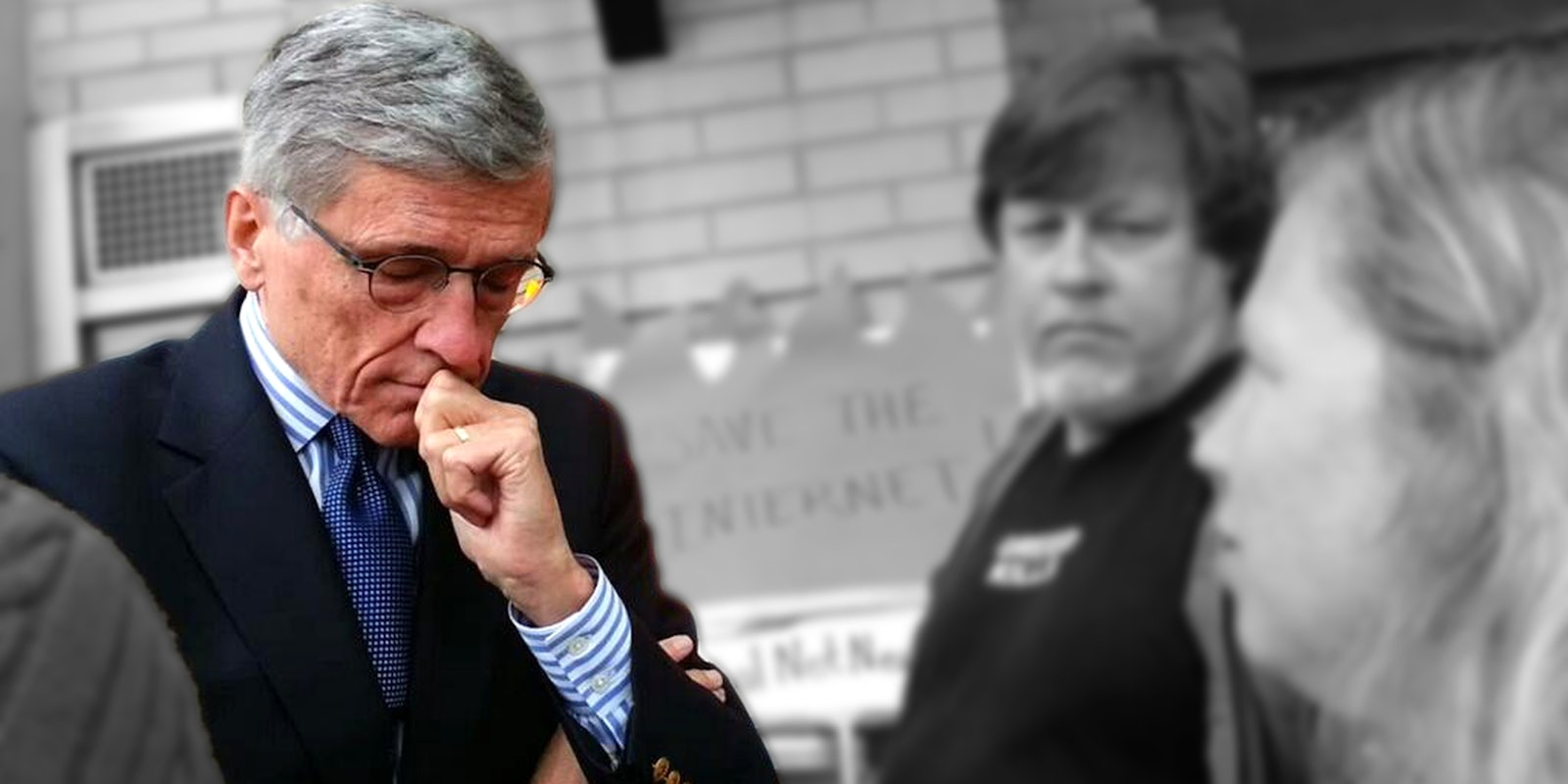Net neutrality activists who have spent the past week camping out in front of the Federal Communications Commission have finally gotten the attention of the big guy.
FCC Chair Tom Wheeler came and met with the long-stay protesters for about 10 minutes Wednesday morning, activists said. He was joined by commissioner Mignon Clyburn. Commissioner Ajit Pai met also with protesters Friday.
The agency is at the heart of a heated battle for net neutrality. The activists protesting outside FCC headquarters seek to prohibit Internet service providers (ISPs) from charging certain Internet sites or services more money to access customers at higher broadband full speeds—a practice known as “paid prioritization” that is reportedly central to the FCC’s forthcoming net neutrality proposal.
Wheeler has since amended his proposed rule changes, which will go before a vote Thursday, to be friendlier to net neutrality, though he still faces significant criticism.
As part of a clear effort on the FCC’s part to show that Wheeler at least acknowledges their concerns, FCC Counsel for External Affairs Gigi Sohn tweeted a photo of the meeting.
.@TomWheelerFCC engaging with #netneutrality protesters outside @FCC moments ago. pic.twitter.com/Q63Mq5RkjS
— Gigi Sohn (@GigiBSohnFCC) May 14, 2014
“What’s exciting is seeing this mounting public pressure having a huge impact at the FCC,” Evan Greer, campaign manager at Fight For the Future, one of the groups organizing the protest, told the Daily Dot.
“A culture shift has happened here in the last week alone. This is a building almost no one goes to unless they’re an AT&T, Comcast, or Verizon lobbyist. Now it’s filled with flyers for net neutrality, carried in by employees handed them on their way to work,” she said.
In a conversation with activists Kevin Zeese and Margaret Flowers, Greer said, Wheeler reiterated his preference to rely on a provision of the Telecommunications Act, known as Section 706, which grants the FCC the authority to regulate the deployment of broadband, as it would be the fastest way to keep Internet providers at bay.
But those activists, like most, want the Internet to be classified as a utility, like water and electricity, saying that would both give the FCC more regulatory control and accurately describes the reality of how important the Internet is to people’s everyday lives.
“We don’t want the fastest route to net neutrality, we want a route that’s going to last, thats’ going to protect the internet as a public good,” Greer said.
Photo courtesy Kevin Huang/Fight for the Future. Remix by Fernando Alfonso III


